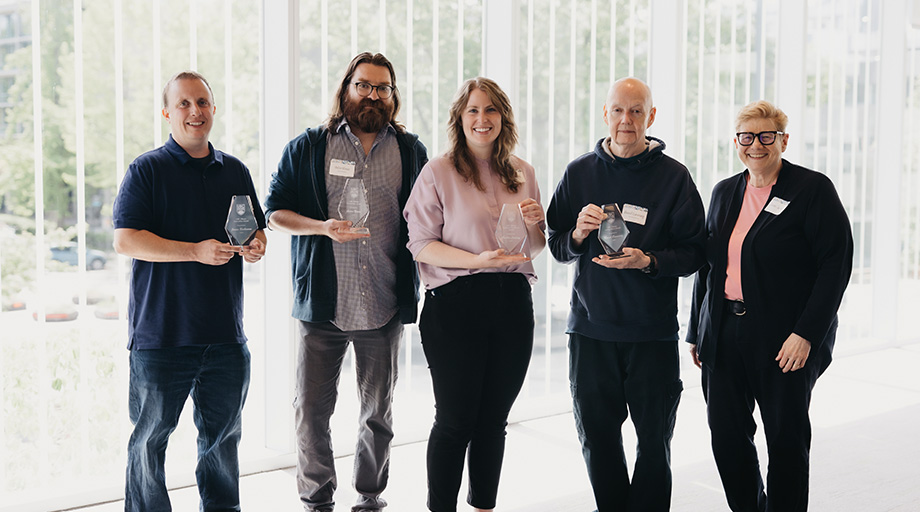Ephemera, by its very definition, was never meant to stick around. Defined as items that have been preserved despite the fact that they were not intended to be at their time of production, the term is used to describe commonplace paper objects like flyers, menus, event tickets, postcards, and more.
Valentine’s card (1919) from the Tremaine Arkley Croquet Collection
While some ephemera may seem kitschy or frivolous on the surface, it can also be a form of historical documentation, providing a glimpse into its period of creation. Ephemera can act as a portal to a bygone era, demonstrating the aesthetic, linguistic, and cultural trends of its time.
Broadside (1988) from the R. Mathison Collection
History & Context
“Ephemera” etymologically originates from the Greek word “ephēmeros”, meaning “lasting only a day”. Usage of the word can be traced as far back as Aristotle’s works, and by the mid-1800’s, “ephemeral” had been widely adopted to describe generic, printed items.
Cigar label (after 1888) from the Phil Lind Klondike Gold Rush Collection
The categorization of materials as ephemera is not as simple as it may seem. Scholars agree that its scope is ever-shifting, and that as cultural trends change, so does our definition of the term.
Archivist and writer Rick Prelinger argues that ephemeral objects become less ephemeral the more historical significance they’re prescribed. Nevertheless, the categorization endures, and special collections libraries and archives continue to preserve these “minor transient documents of everyday life”.
Ephemera in Open Collections
As one can imagine, ephemera from many different regions, eras, and social contexts exists within UBC Open Collections, providing additional context to the historical photographs and documentation with which it resides.
Menu from the Cabin Cafe (1912) from the Uno Langmann Family Collection of BC Photographs
Below, we take you on a tour through some of the ephemeral wonders of Open Collections.
Wallace B. Chung and Madeline H. Chung Collection
The Wallace B. Chung and Madeline H. Chung Collection contains ephemera related to the lives of Chinese Canadians in the 19th and early 20th centuries, including letters, business records and even election ballots.
These items provide insight into the social and cultural values of Chinese Canadians at this time and illuminate the history of local Chinese families, businesses, and organizations.
Card for Pan-Pacific Women’s Conference (1937)
Also represented in the Chung Collection are the early years of the Canadian Pacific Railway company. Ephemera from this period includes menus, pamphlets, baggage tags, and travel tickets.
These items are often eye-catching and colourful, revealing the aesthetic sensibilities of their time. They also reveal the era’s prevailing cultural desires—to travel, to be worldly, to explore.
However, some ephemeral items related to the Canadian Pacific Railroad illuminate the darker nature of Canadian travel at this time, with several pamphlets and posters employing colonial, orientalist, and otherwise harmful racist tropes to advertise domestic and international journeys. These materials depict Indigenous and non-Western people as exotic or “other”, while insisting that settler Canadians are more than welcome to travel to their homelands. Just as ephemera can shed light on the past’s more innocuous trends, it can elucidate its problematic cultural mores, too.
Note: As with all content in Open Collections, inclusion of these materials in the Chung Collection is not an endorsement of their messaging. They have been retained for transparency and to demonstrate the social conditions of their time.
R. Mathison Printing Collection
Another treasure trove of ephemera is the R. Mathison Collection. Robert Mathison Jr.’s Vancouver print shop produced materials for local businesses from 1886-1890.
Wall calendar advertising printing services (1886)
The collection includes business cards, advertisements, and raffle tickets, and enables its viewer to imagine the Vancouver business landscape of the late 1800’s. It also provides a fascinating look at the marketing trends of the time.
H. Colin Slim Stravinsky Collection
The H. Colin Slim Stravinsky Collection documents the life of Russian composer and conductor Igor Stravinsky through letters, scores, and photographs. Ephemera in this collection includes concert programs and sheet music, as well as Stravinsky memorabilia like stamps and postcards.
Sheet of 100 postage stamps depicting Igor Stravinsky (1982)
These materials are evidence of Stravinsky’s cultural impact, and, more broadly, of the enduring cultural impact of classical music during the early to mid 20th century.
The everlasting allure of ephemera
Whether you’re a history buff or a kitsch collector, an ephemera-guided journey through time can be a source of great wonder and delight. The value of these materials lies in their ability to illuminate the seemingly mundane, but nonetheless meaningful quotidian events of eras past.
Bumper sticker (between 1968-1973) from the Berkeley Poster Collection
While it may seem fundamentally contradictory, it’s safe to say that ephemera is here to stay.


















